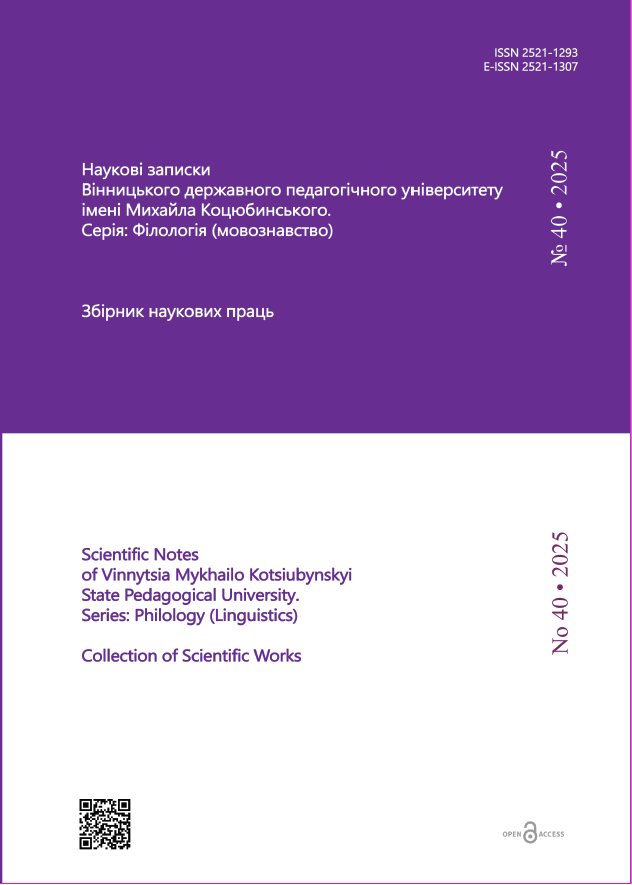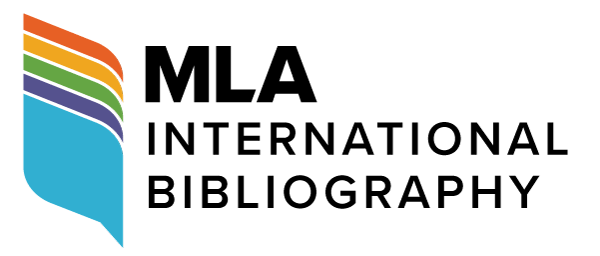Climate change discourse by the British Ministry of Defence: The framing of the 2024 report
DOI:
https://doi.org/10.31652/2521-1307-2025-40-03Keywords:
climate change discourse, the Ministry of Defence, framing, reports, securitisation, the UKAbstract
The current political discourse in the UK is characterised by a notable tendency to securitise the issue of climate change. Given that the British Ministry of Defence (further – the MoD) is responsible for the UK’s security, it is pivotal to shed light onto how the MoD frames the issue of climate change in its reports. Against this background, the present article introduces a study, which employs a qualitative framing analysis in order to examine the framing of climate change in the MoD’s report on climate change published in 2024. The aim of the study is to provide answers the following research question (RQ): How is the issue of climate change framed in the MoD’s 2024 report? In terms of the methodology, the study is based upon a qualitative framing approach to discourse (Entman, 1993). The application of the qualitative methodology to the report yielded the following results, which were manifested by eight different types of frames, namely Agility, Challenge, Costs, Future, Green Energy, Mitigation, Risk, and Technology. It was found that all of the aforementioned frames were discursively situated in the nexus between the issues of security and climate change. Judging from the findings, the MoD report framed the issue of climate change via the frames that were interrelated or, at least, were indicative of a clear connection between them, which allowed their classification into the following groups: (i) Challenge and Risk, (ii) Costs, Future, and Mitigation, and (iii) Technology and Green Energy. Concurrently, the frame Agility was found to be a stand-alone type of the framing of climate change. Discussion. The frames Challenge and Risk, (ii) Costs and Mitigation, and (iii) Technology and Green Energy were reflective of the literature, which reported the presence of similar frames in the British discourses on climate change. However, it was established that the frames Agility and Future could not be discussed in terms of their relationship to the literature on the grounds that they, and especially, the frame Agility, seemed to be a novel finding not previously mentioned in the prior studies. It could be concluded that the British MoD communicated the issue of climate change in an open access report that was framed in such a way that it seemed to be aligned with the respective frames by the consecutive British governments, such as the frames Challenge and Risk, Costs and Mitigation, and Technology and Green Energy.
References
Anthony, L. (2022). AntConc Version 4.0.11. Tokyo: Waseda University.
Baylis, J. (2021). British defence policy. In J. Baylis, K. Booth, J. Garnett, & P. Williams (Eds.) Contemporary Strategy (pp. 265–286). London: Routledge. https://doi.org/10.4324/9781003104339. DOI: https://doi.org/10.4324/9781003104339-16
Boas, I. (2015). Climate Migration and Security. Securitization as a Strategy in Climate Change Politics. New York : Routledge. DOI: https://doi.org/10.4324/9781315749228
Boas, I., & Rothe, D. (2016). From conflict to resilience? Explaining recent changes in climate security discourse and practice. Environmental Politics, 25, 613–632. DOI: https://doi.org/10.1080/09644016.2016.1160479
Bowles, D. C., Butler, C. D., & Morisetti, N. (2015). Climate change, conflict and health. Journal of the Royal Society of Medicine, 108(10), 390–395. https://doi.org/10.1177/0141076815603234. DOI: https://doi.org/10.1177/0141076815603234
Buzan, B., Wæver, O., & De Wilde, J. (1998). Security: A New Framework for Analysis. London: Lynne Rienner Publishers. DOI: https://doi.org/10.1515/9781685853808
Calman, K. C. (2004). Evolutionary ethics: can values change. Journal of Medical Ethics, 30(4), 366–370. https://doi.org/10.1136/jme.2002.003582. DOI: https://doi.org/10.1136/jme.2002.003582
Chmutina, K., Fussey, P., Dainty, A., & Bosher, L. (2018). Implications of transforming climate change risks into security risks. Disaster Prevention and Management: An International Journal, 27(5), 460–477. https://doi.org/10.1108/DPM-04-2018-0121. DOI: https://doi.org/10.1108/DPM-04-2018-0121
Entman, R. M. (1993). Framing: Toward clarification of a fractured paradigm. Journal of Communication, 43(4), 51–58. DOI: https://doi.org/10.1111/j.1460-2466.1993.tb01304.x
Entman, R. M. (2007). Framing bias: Media in the distribution of power. Journal of Communication, 57(1), 163–173. https://doi.org/10.1111/j.1460-2466.2006.00336.x. DOI: https://doi.org/10.1111/j.1460-2466.2006.00336.x
Fløttum, K., & Dahl, T. (2012). Different contexts, different “stories”? A linguistic comparison of two development reports on climate change. Language & Communication, 32(1), 14–23. DOI: https://doi.org/10.1016/j.langcom.2011.11.002
Fløttum, K., & Gjerstad, Ø. (2013). Arguing for climate policy through the linguistic construction of Narratives and voices: the case of the South-African green paper “National Climate Change Response”. Climatic Change, 118, 417–430. DOI: https://doi.org/10.1007/s10584-012-0654-7
Fløttum, K., Gjesdal, A. M., Gjerstad, Ø., Koteyko, N., & Salway, A. (2014). Representations of the future in English language blogs on climate change. Global Environmental Change, 29, 213–222. https://doi.org/10.1016/j.gloenvcha.2014.10.005. DOI: https://doi.org/10.1016/j.gloenvcha.2014.10.005
Gillings, M., & Dayrell, C. (2024). Climate change in the UK press: Examining discourse fluctuation over time. Applied Linguistics, 45(1), 111–133. https://doi.org/10.1093/applin/amad007. DOI: https://doi.org/10.1093/applin/amad007
Harrington, C. (2023). Climate change as a “Threat multiplier”: the construction of climate security by the United Kingdom 2007–2020. In J. N. Hardt, C. Harrington, F. von Lucke, A. Estève, N. P. Simpson (Eds.) Climate Security in the Anthropocene: Exploring the Approaches of United Nations Security Council Member-States (pp. 297–318). Cham: Springer. DOI: https://doi.org/10.1007/978-3-031-26014-8_14
Job, S. (2009). The Rise of a Global God-Image? Spiritual internationalists, the international left and the idea of human progress. Third World Quarterly, 30(1), 205–225. https://doi.org/10.1080/01436590802622623. DOI: https://doi.org/10.1080/01436590802622623
Kapranov, O. (2016a). The framing of Serbia’s EU accession by the British Foreign Office on Twitter. Tekst i Dyskurs — Text und Diskurs, 9(9), 67–80.
Kapranov, O. (2016b). Corpus analysis of discourse markers in corporate reports involving climate change. EPiC Series in Language and Linguistics, 1, 216–227. DOI: https://doi.org/10.29007/qxsg
Kapranov, O. (2016c). Conceptual metaphors in British Foreign secretary’s Twitter discourse involving Ukraine. Respectus Philologicus, 29(34), 75–86. https://doi.org/10.15388/RESPECTUS.2016.29.34.08 DOI: https://doi.org/10.15388/RESPECTUS.2016.29.34.08
Kapranov, O. (2017a). British Petroleum’s corporate discourse involving climate change before and after the Deepwater Horizon oil spill: A cognitive linguistic account. Selected Papers on Theoretical and Applied Linguistics, 22, 211–223.
Kapranov, O. (2017b). Conceptual metaphors associated with climate change in corporate reports in the fossil fuels market: Two perspectives from the United States and Australia. In The Role of Language in the Climate Change Debate (pp. 90–109). London: Routledge. DOI: https://doi.org/10.4324/9781315456935-6
Kapranov, O. (2017c). The framing of climate-change discourse by Shell and the framing of Shell’s climate change-related activities by the Economist and the Financial Times. Bergen Language and Linguistics Studies, 7, 55–69. https://doi.org/10.15845/bells.v7i0.1088. DOI: https://doi.org/10.15845/bells.v7i0.1088
Kapranov, O. (2018a). Shell’s image of climate change and its representations in the British financial press. In G. E. Garzone & W. Giordano (eds.) Discourse, Communication and the Enterprise: Where Business Meets Language (pp. 392–409). Newcastle upon Tyne: Cambridge Scholar Publishing.
Kapranov, O. (2018b). Conceptual metaphors associated with climate change in the UK political discourse. In R. Augustyn, & A. Mierzwińska-Hajnos (eds.) New Insights into the Language and Cognition Interface (pp. 51–66). Newcastle upon Tyne: Cambridge Scholars Publishing.
Kapranov, O. (2022). The syntax of climate change: Syntactic means in the construction of Greta Thunberg’s community identity on Facebook. Studia Universitatis Babes-Bolyai-Philologia, 67(4), 15–33. DOI: https://doi.org/10.24193/subbphilo.2022.4.01
Kapranov, O. (2024a). Between a burden and green technology: Rishi Sunak’s framing of climate change discourse on Facebook and X (Twitter). Information & Media, 99, 85–105. https://doi.org/10.15388/Im.2024.99.5 DOI: https://doi.org/10.15388/Im.2024.99.5
Kapranov, O. (2024b). An ecolinguistic approach to the framing of King Charles III’s climate change-related activities by the leading American and British media. Philologia, 22(1), 53–73. https://doi.org/10.18485/philologia.2024.22.22.3. DOI: https://doi.org/10.18485/philologia.2024.22.22.3
Kumar, S., Chatterjee, U., David Raj, A., & Sooryamol, K. R. (2024). Global warming and climate crisis/extreme events. In U. Chatterjee, R. Shaw, S. Kumar, A. D. Raj, & S. Das (Eds.) Climate Crisis: Adaptive Approaches and Sustainability (pp. 3–18). Cham: Springer. DOI: https://doi.org/10.1007/978-3-031-44397-8_1
Matthews, J. (2017). Maintaining a politicised climate of opinion? Examining how political framing and journalistic logic combine to shape speaking opportunities in UK elite newspaper reporting of climate change. Public Understanding of Science, 26(4), 467–480. DOI: https://doi.org/10.1177/0963662515599909
Nicholls, R. J., & Kebede, A. S. (2012). Indirect impacts of coastal climate change and sea-level rise: the UK example. Climate Policy, 12(01), 28–52. DOI: https://doi.org/10.1080/14693062.2012.728792
Nisbett, N., Spaiser, V., Leston-Bandeira, C., & Valdenegro, D. (2024). Climate action or delay: the dynamics of competing narratives in the UK political sphere and the influence of climate protest. Climate Policy, (0), 1–14. https://doi.org/10.1080/14693062.2024.2398169. DOI: https://doi.org/10.2139/ssrn.4714508
Otto, F. (2020). Angry Weather: Heat Waves, Floods, Storms, and the New Science of Climate Change. Vancouver: Greystone Books.
Peters, K. (2018). Disasters, climate change, and securitisation: the United Nations Security Council and the United Kingdom's security policy. Disasters, 42, 196–214. https://doi.org/10.1111/disa.12307. DOI: https://doi.org/10.1111/disa.12307
Ponton, D. M., & Raimo, A. (2024). Framing environmental discourse. Greta Thunberg, metaphors, blah blah blah!. Cogent Arts & Humanities, 11(1), 1–15. https://doi.org/10.1080/23311983.2024.2339577. DOI: https://doi.org/10.1080/23311983.2024.2339577
Russill, C., & Nyssa, Z. (2009). The tipping point trend in climate change communication. Global Environmental Change, 19(3), 336–344. https://doi.org/10.1016/j.gloenvcha.2009.04.001. DOI: https://doi.org/10.1016/j.gloenvcha.2009.04.001
Scheufele, D. A. (1999). Framing as a theory of media effects. Journal of Communication, 49(1), 103–122. DOI: https://doi.org/10.1093/joc/49.1.103
Thomas, M. (2023). Climate change and military forces. In M. J. Trombetta (ed.) Handbook on Climate Change and International Security (pp. 219–237). Cheltenham: Edward Elgar Publishing. DOI: https://doi.org/10.4337/9781789906448.00022
Warner, J., & Boas, I. (2019). Securitization of climate change: How invoking global dangers for instrumental ends can backfire. Environment and Planning: Politics and Space, 37(8), 1471–1488. DOI: https://doi.org/10.1177/2399654419834018









